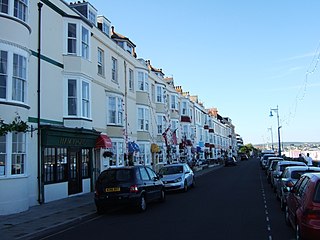Private property is a legal designation for the ownership of property by non-governmental legal entities.
Private property may also refer to:
Civil law may refer to:

Property is a system of rights that gives people legal control of valuable things, and also refers to the valuable things themselves. Depending on the nature of the property, an owner of property may have the right to consume, alter, share, redefine, rent, mortgage, pawn, sell, exchange, transfer, give away or destroy it, or to exclude others from doing these things, as well as to perhaps abandon it; whereas regardless of the nature of the property, the owner thereof has the right to properly use it under the granted property rights.
Property law is the area of law that governs the various forms of ownership in real property (land) and personal property. Property refers to legally protected claims to resources, such as land and personal property, including intellectual property. Property can be exchanged through contract law, and if property is violated, one could sue under tort law to protect it.
Patrimony may refer to:
Franchise may refer to:
Eminent domain, land acquisition, compulsory purchase/acquisition, resumption, resumption/compulsory acquisition, or expropriation is the power of a state, provincial, or national government to take private property for public use. It does not include the power to take and transfer ownership of private property from one property owner to another private property owner without a valid public purpose. This power can be legislatively delegated by the state to municipalities, government subdivisions, or even to private persons or corporations, when they are authorized by the legislature to exercise the functions of public character.
Private property is a legal designation for the ownership of property by non-governmental legal entities. Private property is distinguishable from public property, which is owned by a state entity, and from collective or cooperative property, which is owned by a group of non-governmental entities. The distinction between private and personal property varies depending on political philosophy, with socialist perspectives making a hard distinction between the two. As a legal concept, private property is defined and enforced by a country's political system.
Pro bono publico, usually shortened to pro bono, is a Latin phrase for professional work undertaken voluntarily and without payment. The term typically refers to provision of legal services by legal professionals for people who are unable to afford them.
Ownership is the state or fact of legal possession and control over property, which may be any asset, tangible or intangible. Ownership can involve multiple rights, collectively referred to as title, which may be separated and held by different parties.
Entertainment law, also referred to as media law, is legal services provided to the entertainment industry. These services in entertainment law overlap with intellectual property law. Intellectual property has many moving parts that include trademarks, copyright, and the "Right of Publicity". However, the practice of entertainment law often involves questions of employment law, contract law, torts, labor law, bankruptcy law, immigration, securities law, security interests, agency, right of privacy, defamation, advertising, criminal law, tax law, International law, and insurance law.
Boundary or Boundaries may refer to:
Ripping is extracting all or parts of digital contents from a container. Originally, it meant to rip music out of Amiga games. Later, the term was used to extract WAV or MP3 format files from digital audio CDs, but got applied as well to extract the contents of any media, most notably DVD and Blu-ray discs.
Abandon, abandoned, or abandonment may refer to:
Breach, Breached, or The Breach may refer to:
The Federation Against Copyright Theft (FACT) is an organisation established in 1983 to protect and represent the interests of its members' intellectual property (IP). FACT also investigates fraud and cybercrime, and provides global due diligence services to support citizenship investment and trade, business, financial and legal compliance.

The intellectual property rights on photographs are protected in different jurisdictions by the laws governing copyright and moral rights. In some cases photography may be restricted by civil or criminal law. Publishing certain photographs can be restricted by privacy or other laws. Photography can be generally restricted in the interests of public morality and the protection of children.
An easement is a nonpossessory right to use and/or enter onto the real property of another without possessing it. It is "best typified in the right of way which one landowner, A, may enjoy over the land of another, B". An easement is a property right and type of incorporeal property in itself at common law in most jurisdictions.

The public domain consists of all the creative work to which no exclusive intellectual property rights apply. Those rights may have expired, been forfeited, expressly waived, or may be inapplicable.

Copyright infringement is the use of works protected by copyright without permission for a usage where such permission is required, thereby infringing certain exclusive rights granted to the copyright holder, such as the right to reproduce, distribute, display or perform the protected work, or to make derivative works. The copyright holder is typically the work's creator, or a publisher or other business to whom copyright has been assigned. Copyright holders routinely invoke legal and technological measures to prevent and penalize copyright infringement.

You've Been Trumped is a 2011 documentary by British filmmaker Anthony W. J. Baxter. The film documents the construction of a luxury golf course on a beach in Balmedie, Aberdeenshire, Scotland, by developer Donald Trump and the subsequent struggles between the locals, Donald Trump, and Scottish legal and governmental authorities.